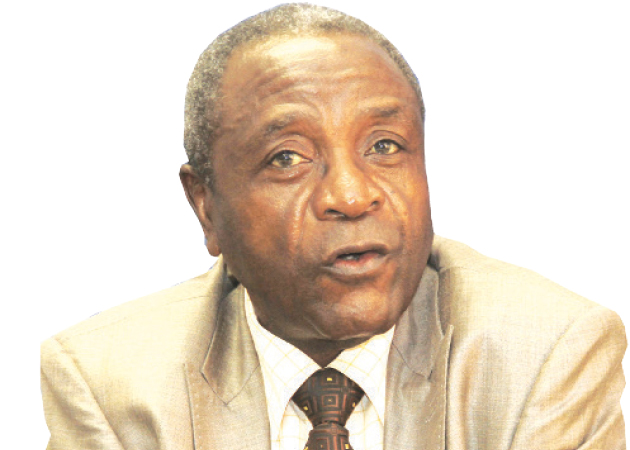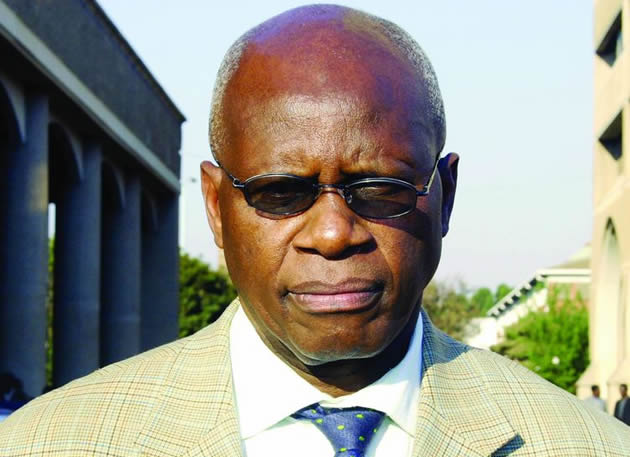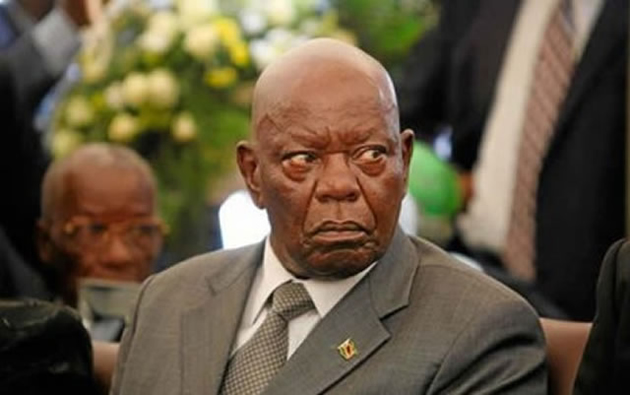ASIAGATE 2 BREWING

Lovemore Dube Senior Sports Editor
THE poor financial situation obtaining at the Zimbabwe Football Association is a recipe for the return of Asiagate to these shores. Like convicted serial match-fixer Wilson Raj Perumal said of Zimbabwe, he and the country were like two hands willing to clap during the days of hyper inflation, Zifa is broke. Employees have gone for several months without salaries and inflows from affiliates through gate takings and other levies are insufficient to sustain the organisation’s operations.
Zifa last week sent a team to Morocco without a single cent in the wallet of either the team manager Patrick Muteswa or head of delegation Tawengwa Hara.
When Zimbabwe started travelling to Asia for allegedly fixed matches, the country’s economy was at its lowest and Zimbabweans were in dire need of funds to sustain their livelihoods. Football, as Chronicle had warned in June 2004, was now vulnerable to a scourge that had already reared its ugly head in Asia, East Europe and Latin America with Third World countries then under threat.
Zifa communications manager Xolisani Gwesela put on a very brave face on Wednesday morning insisting that all systems were in place to ensure there was no Asiagate 2. He also said they had a mechanism in place even for the local game.
Last year a number of top football officials who included Gladmore Muzambi, Brighton Mudzamiri, Kennedy Ndebele, Jonathan Mashingaidze, Cuthbert Dube and Ndumiso Gumede attended an Integrity in Sport workshop run by Interpol and Cosafa in Victoria Falls.
The intensive workshop also dealt with early warning signs that could leave the game at risk.
Zifa is being shunned by traditional sponsors, the government and the man in the street after a decade of bruising of the organisation’s image due to a number of factors — politics of patronage, poor administration and poor funding. The many fights that the association’s principals have engaged with affiliates’ representatives have left Zifa badly bruised and needing more than divine intervention.
Day after day, the association’s level of indebtedness soars yet its obligations to the nation through national teams’ participation in tournaments remains a priority.
For the team that travelled to Morocco, so many things were just not in order which is not good for the game’s integrity. The players were not paid their camping allowances and had no money to buy anything, not even water during the long wait for a connecting flight from Dubai to Morocco.
Sportspersons need lots of fluids to manage their nutritional requirements and hydration levels when travelling to other geographical regions. It took team manager Muteswa to play Good Samaritan to avert fainting among players because of hunger during the eight-hour stopover when he bought them food. Expectations were high that the contingent would get something in Morocco, but from who?
The whispers continued among members the travelling party: “Maybe bag richabuda kumhiri.” (Maybe there is something in store for us when we get there).
One could not help but sympathise with the players whose allowances plus a good performance against Morocco now demands Zifa to be supported financially. The senior national football team is the biggest representative sporting side in the country. It brings people together from across the political, religious, geographical and social divide.
Questions were raised in Morocco about the security of the team. This time around there were no security personnel travelling with the contingent leaving the whole party exposed to match-fixers and manipulators.
Club Robinson, no doubt the best of what we saw in Ogadir, is within a big complex spreading almost 800 metres from the reception with clients using battery powered vehicles to their rooms. It comprises several three-storey blocks.The players were accommodated in more than three and one of them had a luxurious room all to himself making it easier for match-fixers to penetrate. The trend has been that players share rooms and team management provides cover by occupying rooms in strategic positions to monitor players’ movements.
Despite not having any money in Morocco, the team would patiently wait for meal times to have a soft drink and water which was not a healthy situation at all.
If anyone had dangled a carrot before these youngsters, there is no doubt many would have been tempted because of the poor financial position of Zifa.
Despite all this where even communication back home was done through a single cellphone line bought by this writer, things were just not well for team to subscribe to Fair Play.
Coaches, however, were able to emphasise the need to play for the country’s honour and pride and hope some day the caps earned would count. The team played beyond our expectations and won the praises of the Moroccan media as well.
Zifa however, redeemed themselves and paid the players on Tuesday evening as they arrived from North Africa. For a cash-strapped organisation it was touching to see them running around and getting something for the players who definitely deserved more than the $150 they each received.
It is, however, the Zifa coffers situation that leaves even those at the secretariat, coaches and players vulnerable to the return of match-fixing.
What was amicably sorted out as it threatened to blow out of contention was the status of the game. Morocco had been made to believe that they would play a full Zimbabwe team but a quick research by the media disclosed that the squad was a developmental one.
Travelling board members Hara and Muteswa impressed on the Moroccan Football Association that the senior team had been dissolved and that the travelling party was the team of the future.
“This is the team for the future, we are exposing it to international competitions and should benefit from qualifiers for the African Under-23 Championships, All-Africa Games and Olympics. After all these tournaments we should have a very strong team to take us places,” said Hara.
Zifa last month sent national team coach Callisto Pasuwa to a workshop for national coaches in Egypt and he was in charge with his assistants Saul Chaminuka, Nation Dube and Tembo Chuma.
The men appeared very jittery when the Moroccan media quizzed them and signs of relief were all over their faces after the hearty performance by the team.
Pasuwa intends having a camp in December with locally based players if Zifa find the funding for that.
Poor preparations for the trip saw Kuda Mahachi and Marvelous Nakamba fail to travel. They could not board planes from South Africa (Mahachi) and the Netherlands for Nakamba. The authorities in those countries insisted on written assurances that the players would get visas at the port of entry. At one stage the players were sent letters by email that did not have the Zifa letter head and these were rejected.
One thing that Zimbabweans should do is to take the blame for not supporting Zifa. It is not their sole responsibility to look for funds for national teams.
Good preparations from the start are a good foundation for success and national team activity should not be an event but a process where results are reaped after meticulous planning and training which all needs funding.
As things stand the local game does not look safe from infiltration by match-fixers and manipulators.










Comments